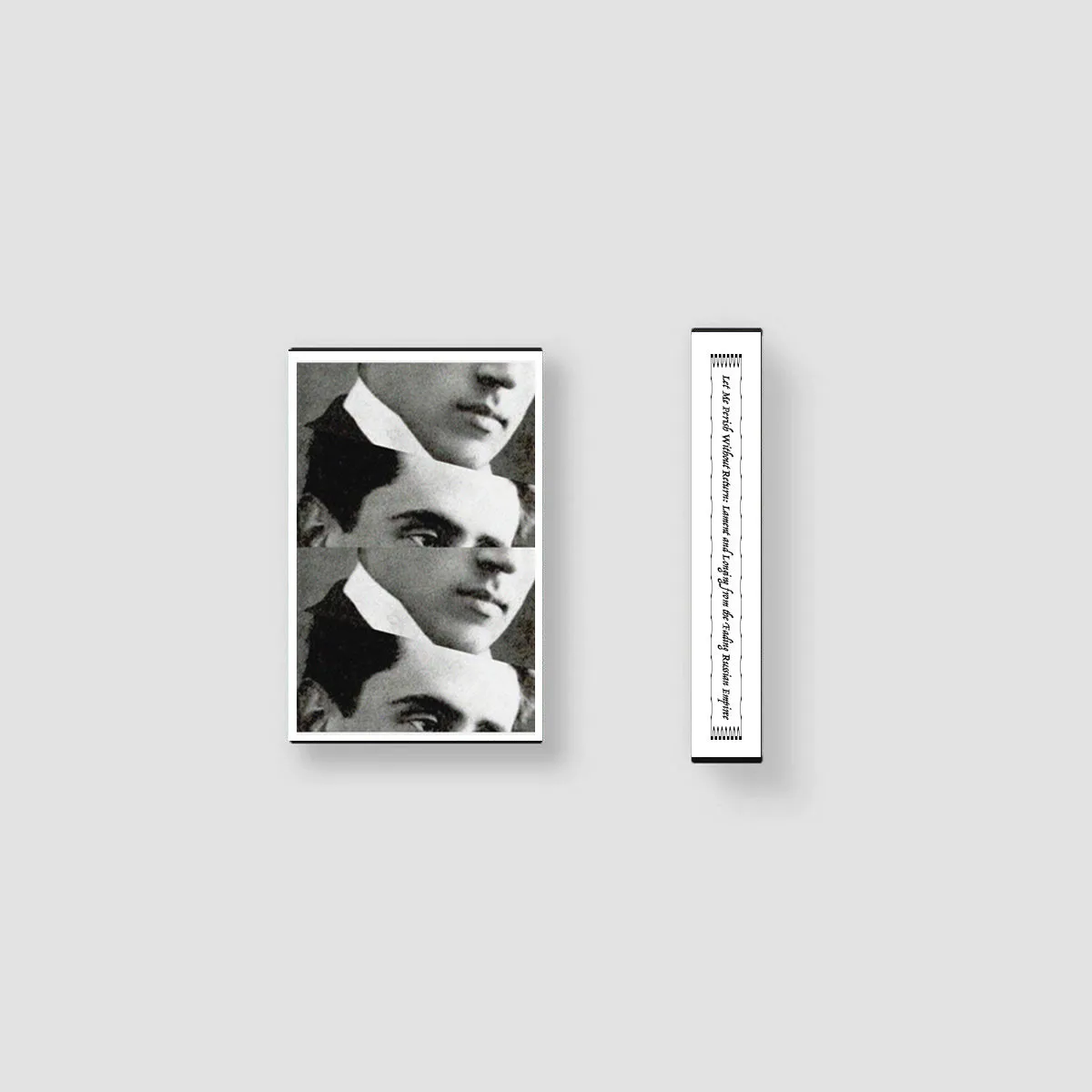- Cassette
- Recommended
- Back In
VA
Let Me Perish Without Return: Lament and Longing from the Fading Russian Empire, 1889-1917
Death Is Not The End - Cat No: DEATH097
- updated:2025-06-26
ニューヨーク各区にあるボデガ(食料雑貨店)や携帯電話ショップで音楽を情熱的に掘り起こす音楽を紹介するブログにしてWFMU内カルト番組Bodega Popを主催するGary SullivanとDeath Is Not The Endによるコラボレーション・リリース第二弾カセットテープ!!
Track List
-
1. S. Sadovnikov - Let Me Perish Without Return
02:34 -
2. Bogemski & Mironova - In the Harem
02:17 -
3. Y. Morfessi - You Ask for Songs
02:18 -
4. V. Kriger - Conversation Between the Audience and the Gramophone
03:17 -
5. N. Plevitskaya - The Horse Drags Along Quietly
02:35 -
6. Unknown Artists - Unknown Song
03:00 -
7. D. Ershov - Tell Me, Comrade, How Did You End up in the Mine?
02:54 -
8. Borin & Dmitrievsky - No, No, I Don’t Want
03:02 -
9. Bragin - Do You Remember, Comrade Constant?
02:42 -
10. N. Tamara - Swan Song
02:29 -
11. Mikhailova - In the Midnight Silence
02:42 -
12. L. Sibiryakov - Star, Forgive Me, It’s Time for Me to Sleep
03:06 -
13. M. Komarova - Have Pity
02:35 -
14. M. Vavich - Have Pity
02:30 -
15. Orlov & Romanchenko - Nastenka
02:47 -
16. N. Shevelev - The Song of a Convict
03:04 -
17. Unknown Artists - Unknown Song
02:51 -
18. N. Dulkevich - The Last Five Roubles
02:21 -
19. A. Zharkovsky - Our Tormented, Tortured Brother Craftsman
03:19 -
20. F. Shalyapin - The Sun Rises and Sets
03:21
"At the turn of the last century, the Russian Empire stood at a crossroads, caught between the weight of its imperial past and the promise of a radically altered future. Recorded during a period of profound cultural transformation and unrest, the music collected here offers a haunting glimpse into that fragile moment in history. From playful and satirical melodies that were musichall staples to heartbreaking ballads reflecting the despair of those exiled to Siberian penal colonies, these songs provided both refuge and a reflection of the deep suffering experienced by many living under the regime. More than entertainment, they formed essential strands in the Russian cultural fabric of the time—songs sung in drawing rooms and taverns and on street corners and prison grounds.
I found this music in several gift and media stores in Forest Hills, Queens, and the Brighton Beach and Gravesend neighborhoods of Brooklyn. These and a few other communities are home to more than half a million people of Russian background currently living in New York City, many of them refugees. Back in the aughts and teens, when I was collecting music from New York's innumerable immigrant-run stores, I would always wonder why this music, why here, and why now.
The CDs immigrants stocked on their New York shelves in the 2000s and 2010s was a tiny fraction of what was available in their home countries. The Russians were in the minority of those who consistently carried compilations of early 20th century recordings—the Chinese, Egyptian, Greek, and Turkish shopkeepers were the only others I remember off the top of my head as being particularly dedicated to this period of their musical history.
What was the appeal of such old music? First-generation Russian New Yorkers might have experienced in it a reflection of their own feelings of displacement and uncertainty. The deep sorrow and yearning expressed in these songs may have resonated with their own senses of loss while offering comfort in the form of shared emotional experience. Perhaps it was a way to keep some cultural memory alive in something they knew had once accompanied their elders and ancestors through times of hardship and change.
What is the appeal of such old music for us, today?"
-- Gary Sullivan (Bodega Pop) credits




ブルックリンとクイーンズのロシア人居住区で発見された、ロシア帝国が崩壊、ソビエト政権が誕生する狭間の時代、1889-1917年、前世紀の変わり目、ロシア帝国は岐路に立たされ、帝国の過去の重荷と、激変する未来への期待との狭間にあった。深い文化的変容と不安の時代に録音されていた悲哀に満ち溢れた、祈りにも近い貴重な大衆音楽(ミュージックホール(大衆演芸場)の定番であった遊び心と風刺に満ちたメロディーから、シベリアの流刑地に追放された人々の絶望を反映した悲痛なバラードまで、政権下で多くの人々が経験した深い苦しみを映し出すもので、娯楽というよりも、居間や居酒屋、街角や牢獄で歌われる、当時のロシア文化に不可欠なものだった。)をまとめたもの。 (コンピューマ)